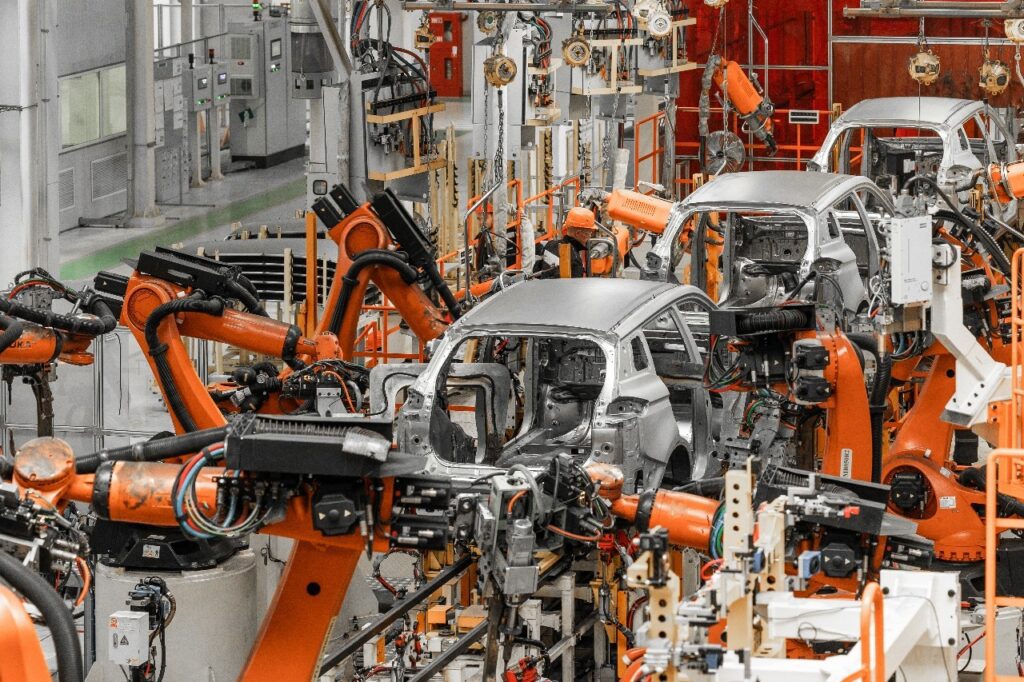Exploring the Basics of Automobile Engineering: An Introduction
Estimated reading time: 9 minutes
Automobiles have played an integral role in shaping our modern society. Automobiles offer efficient transportation. They also help expand global trade. These vehicles are now a crucial part of our daily lives. Modern cars are very convenient and comfortable. This is because of a complicated and interesting area of engineering. It is called automobile engineering. The discipline involves the design, development, and manufacturing of vehicles, including cars, trucks, motorcycles, and other motorized vehicles. This article explores automobile engineering basics. We’ll look at its history, important ideas, and its impact on the car industry.
Do you love cars? Or do you want to become an engineer? Maybe you’re just curious about how cars operate. If so, this article is a perfect way to start learning about automobile engineering. So buckle up and get ready to embark on a journey through the fascinating world of automobile engineering.
A Beginner’s Guide to Automobile Engineering

If you love cars or are curious about how they work, studying automobile engineering is exciting and rewarding. This guide gives you a basic understanding of automobile engineering. It helps you learn the basics and discover all the opportunities in this field.
To begin, it’s important to clarify the distinction between automobile engineering and mechanical engineering. Both have similarities. However, former is about designing, making, and maintaining cars. On the other hand, later deals with a wider variety of machines and systems.
If you aspire to become an automobile engineer, it is crucial to obtain the necessary education and training. The best universities for this course offer specialized programs that provide a comprehensive understanding of automotive technology. These programs typically cover essential topics such as vehicle dynamics, automotive electrical systems, engine design, and automotive materials. Mechanical engineering programs have a wide curriculum. They cover subjects such as thermodynamics, fluid mechanics, and solid mechanics.
Building a successful career in automobile engineering offers substantial opportunities for growth.
The car industry is always changing. Electric cars, self-driving technology, and new fuels are important trends. These trends require skilled workers. By keeping up with these trends, you can find exciting jobs. You can also help shape the future of travel.
In conclusion, learning about automobile engineering opens doors to a world of possibilities. Understand the basics and get the right education. Then, you can start a rewarding career. This career lets you shape the future of automotive technology. So, take the first step, explore the basics, and ignite your passion for automobiles.
Comparing Automobile Engineering and Mechanical Engineering
Automobile engineering and mechanical engineering are closely related fields but have distinct differences. While both involve the study of machines and their mechanisms, automobile engineering focuses specifically on automotive design, manufacturing, and maintenance. On the other hand, mechanical engineering is a broader discipline that encompasses various aspects of machinery and mechanical systems.
The top universities for car engineering have special programs. These programs focus a lot on car technology. These programs often provide in-depth coursework in areas such as vehicle dynamics, automotive electrical systems, engine design, and automotive materials. Mechanical engineering programs offer a wide curriculum. They cover subjects like thermodynamics, fluid mechanics, and solid mechanics.

Automobile engineers can work in different roles. These include automotive design engineer, manufacturing engineer, and research and development engineer. The demand for electric and autonomous vehicles is growing.
This has created new job opportunities in battery technology, hybrid systems, and self-driving technology.
To become an automobile engineer, you should get a bachelor’s degree. This degree could be in automobile engineering. Or it could be in mechanical engineering with a focus on automotive technology.
Automobile engineering and mechanical engineering share some basic ideas. However, automobile engineering focuses more on the car industry. The choice between them depends on what someone likes and wants in their career.
Lucrative Career Growth

Automobile engineering offers tremendous potential for lucrative career growth. Technology is advancing, and there’s a high demand for new vehicles. This means a successful and lucrative career for those in the automotive field. The industry is always changing, needing automobile engineers to make better vehicles for the future. As an automobile engineer, you have many job options. These include working in car manufacturing, research, design, and testing. You get to explore complex car systems like engines, transmissions, electrical setups, and how vehicles move. Compared to a general mechanical engineering career, automobile engineering offers a more focused and specialized approach to the automotive industry.
Keep up with the latest technologies and trends to become valuable in the automotive sector.
Combine education, skills, and experience to succeed in automobile engineering. This way, you can grow professionally and achieve financial stability.
Steps to becoming an Automobile Engineer
To become an automobile engineer, you must follow some steps. These steps will build a strong foundation for your career. Firstly, obtaining a solid educational background is crucial. Research and identify the best universities or colleges that offer programs in automobile engineering. Choose institutions known for their excellent faculty, advanced laboratories, and a broad curriculum. These institutions should offer courses on automotive design, manufacturing processes, vehicle dynamics, and power systems.

Once you join an automobile engineering program, use your education well. Take part in class discussions. Get involved in practical sessions. Work on research projects. Seek internships or co-op opportunities with automotive companies to gain hands-on experience and industry exposure. These experiences will not only enhance your knowledge but also provide valuable networking opportunities.
Furthermore, it is important to distinguish between automobile engineering and mechanical engineering. While there is overlap between the two disciplines, automobile engineering focuses specifically on automotive systems and technologies. Understanding this distinction will help you tailor your studies and career aspirations accordingly.
To succeed in automobile engineering, it’s critical to keep up with new developments and industry trends.
Engage in continuous learning by attending workshops, seminars, and conferences. Consider joining professional groups such as the Society of Automotive Engineers (SAE). They provide resources, host networking events, and publish materials focused on the automotive industry.
Becoming an automobile engineer requires a dedicated commitment to education, practical experience, and staying informed about industry developments. By following these steps, you can pave the way for a promising career in this exciting field of engineering.
Top Universities for Automobile Engineering

Choosing the right university is crucial when pursuing a career in automobile engineering. It can greatly shape your future. Several institutions around the world are renowned for their excellence in this field. They offer comprehensive programs and state-of-the-art facilities to prepare aspirants. This happens through projects and industry collaborations. Students who study at prestigious universities gain a competitive edge. This helps them find exciting career opportunities in the industry.
You may also be interested in exploring the fascinating world of automobiles and making of these game changing machines. To dig deeper into this, check out these insightful articles on engineering here. These articles provide you an overview of real life engineering.
Conclusion
Automobile engineering is similar to mechanical engineering but is a specialized branch. It specifically focuses on designing, developing, and manufacturing automobiles. People who want to be automobile engineers should get a degree in this field. This will give them the skills and knowledge they need, as shown above.
References
- Zhu, X. (2021). Research on the reform of higher automotive engineering education under the background of artificial Intelligence. E3S Web of Conferences, 245, 03091. https://doi.org/10.1051/e3sconf/202124503091
- Ren, C. (2019). Research on teaching methods of Automotive Engineering English in application-oriented universities. Proceedings of the 1st International Symposium on Education, Culture and Social Sciences (ECSS 2019). https://doi.org/10.2991/ecss-19.2019.74
- Xu, S., Liu, F., Zhao, Y., & Yang, C. (2024). Research on the teaching Reform of Vehicle Engineering Job Internship based on the Industry-Education Integration. OALib, 11(07), 1–8. https://doi.org/10.4236/oalib.1111814
FAQs
What are the fundamental principles of automobile engineering and how do they impact the design and function of vehicles?
The fundamental principles of automobile engineering include mechanics, thermodynamics, aerodynamics, and materials science. These principles impact vehicle design by influencing factors such as engine efficiency, structural integrity, aerodynamic performance, and overall safety. Engineers use these principles to optimize the performance, fuel efficiency, and durability of vehicles. This ensures they meet regulatory standards and consumer expectations. Therefore, by understanding these core principles, engineers can design vehicles that are reliable, safe, and efficient.
How do engineers approach the process of designing and testing different components of a vehicle?
Engineers approach the process by first understanding the requirements and constraints of each system. They then use CAD software to create models, conduct simulations and finally build prototypes for physical testing. Engineers analyze data from these tests to identify weaknesses and make improvements. Iteratively refining the design until it meets performance standards and safety regulations. Above all, collaboration between different engineering disciplines is essential to ensure that all components work together seamlessly in the final vehicle design.
What are some of the key advancements in automobile engineering that have revolutionized the industry in recent years?
Some key advancements in automobile engineering that have revolutionized the industry in recent years include the following. Development of electric vehicles. Autonomous driving technology. Advanced safety features such as collision avoidance systems. Improved fuel efficiency through hybrid and alternative fuel technologies. Integration of artificial intelligence and connectivity for enhanced user experience and vehicle performance. These advancements are shaping the future of transportation by making vehicles safer, more efficient, and thus environmentally friendly.
How do safety considerations play a role in the design and development of modern vehicles? What technologies are being implemented to improve overall safety on the road?
Safety considerations are paramount in modern vehicle design. With technologies like adaptive cruise control, automatic braking, and blind-spot monitoring being implemented to enhance safety on the road. These technologies not only use sensors and cameras but also artificial intelligence to detect potential hazards and assist drivers in avoiding collisions. Additionally, advancements in vehicle construction materials and structural design are improving crashworthiness and occupant protection. Overall, the integration of these technologies and design innovations is crucial in reducing the likelihood and severity of accidents.
How does the field of automobile engineering intersect with other disciplines to create more efficient and sustainable vehicles?
Automobile engineering collaborates with materials science to develop lightweight and durable components. Additionally, work with Computer science for advanced vehicle automation and connectivity. Environmental engineering to reduce emissions and improve energy efficiency. Therefore, by integrating these disciplines, we can design vehicles that are more fuel-efficient, environmentally friendly, and technologically advanced. As a result, it leads to the creation of more sustainable modes of transportation.
Additionally, to stay updated with the latest developments in STEM research, visit ENTECH Online. Basically, this is our digital magazine for science, technology, engineering, and mathematics. Further, at ENTECH Online, you’ll find a wealth of information.






